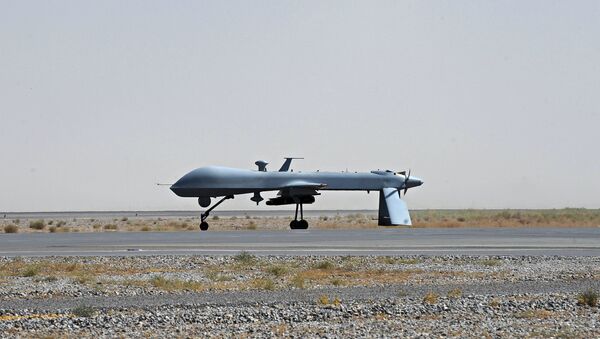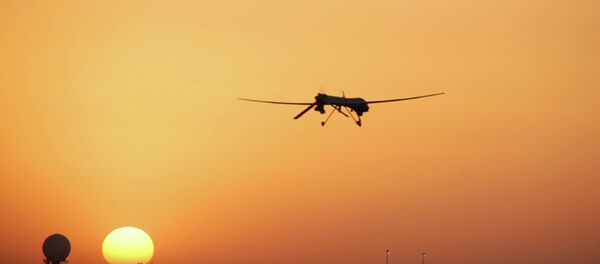Situated in western Germany, close to the French border, Ramstein Air Base provides a crucial role in the US drone campaign, according to documents obtained by the Intercept. It serves as digital waypoint, a major satellite relay station which allows operators in the American Southwest to control UAVs in the Middle East.
Both the US and German governments have denied Ramstein’s role, but a lawsuit filed by Faisal bin Ali Jaber alleges that the base permits the death of innocent civilians in Yemen. Namely, two of his relatives.

"We’re asking the German government to take measures to stop the US from using German soil in their illegal and immoral drone war," said Kat Craig, one of Jaber’s attorneys and legal director for Reprieve, an international human rights group.
Jaber has direct knowledge of the harm that comes from the drone campaign. His relatives, Waleed bin Ali Jaber and Salim bin Ali Jaber, were two civilians killed during a 2012 airstrike against Al Qaeda in the Arabian Peninsula. According to a top-secret US intelligence report, a Yemeni official described as "reliable" identified Salim as "an imam of a mosque who had reportedly preached a sermon that had insulted AQAP," and "had been lured to the car by the two AQAP militants when the airstrike hit."
While US officials have not officially acknowledged – or apologized – for the deaths, the family did receive $100,000.
"One thinks the US believes it can silence the families of the victims with money [rather than] an apology and an explanation," Jaber told Yahoo News last October.
Jaber could cite the intelligence report when he testifies, proving that the US government knew about the civilian deaths soon after they occurred.
The German government tried – unsuccessfully – to get the lawsuit tossed out of court, arguing that there is no proof of a Ramstein connection in the drone war. A Pentagon spokesperson also told the Intercept that the US doesn’t "directly fly or control any manned or remotely piloted aircraft" from the base, but that explanation is only a carefully worded denial of Ramstein’s role as a relay station. True, operators don’t fly "directly" out of the air base, but they do rely on Ramstein as a relay hub.
The case could be an opportunity for human rights groups to force US officials into taking some semblance of responsibility for civilian deaths.
"It’s very difficult to challenge US drone activities in US courts," Craig told the Intercept, "so Reprieve targets the soft underbelly of Europe and US allies there to fill the void of accountability."
No matter the outcome of Jaber’s case, any major policy shifts are unlikely.
"It’s almost unimaginable that lethal counterterrorism operations would rupture a relationship with an ally like Germany," Micah Zenko of the Council on Foreign Relations told the Intercept. "Ramstein is used for so many other things and is so important to the bilateral relationship."
A victory could, nevertheless, be a foot in the door for human rights groups, and could signal hope for accountability in future cases.




